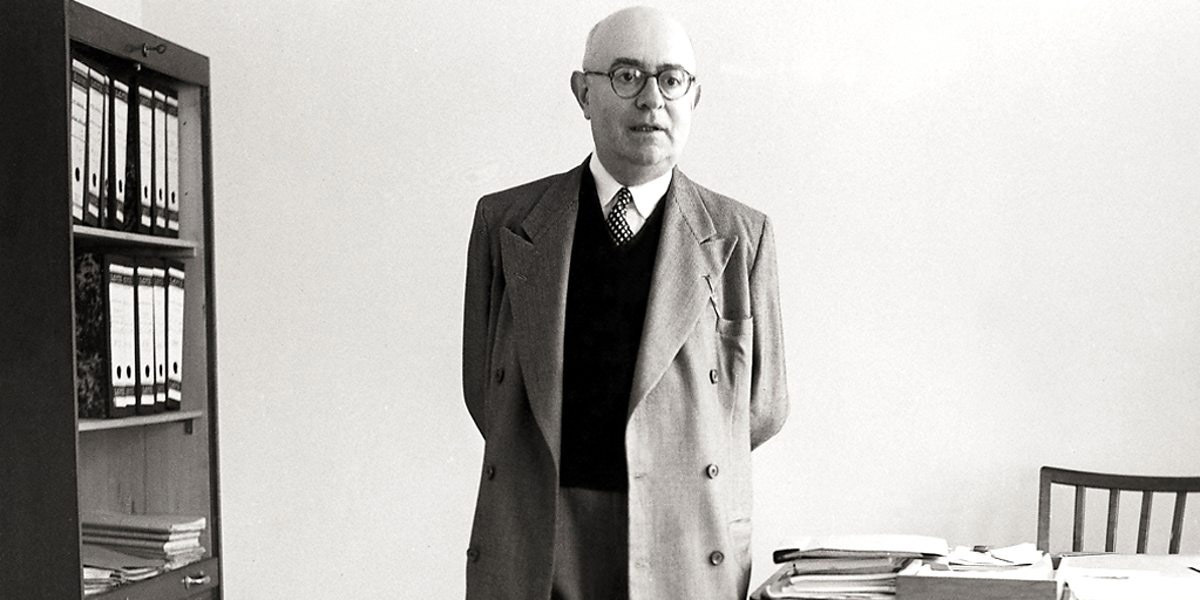One of the founders of the Frankfurt School: Who is Theodor Adorno?
Adorno has produced strong works, especially in the fields of philosophy and critical art sociology.

(1903-1969) German (FAC) philosopher, sociologist, and aesthetic theorist. He is one of the founders of the Frankfurt School. Theodor Wiesengrund Adorno was born on 11 September 1903 in Frankfurt/Main. He was the son of a Jewish family. His mother was a music artist and his father was a merchant. He took piano lessons as a child and composed compositions. After completing his higher education at Frankfurt University, he received his doctorate in 1924 with his thesis on Husserl's phenomenology. In 1925 he went to Vienna, the center of creative music, where he wrote articles for innovative music magazines. He returned to the University of Frankfurt in 1928 and became an associate professor for his work on Kierkegaard's aesthetics. After Hitler came to power in 1933, he left Germany and taught first at Merton College in England and later at Princeton and Berkeley universities in the USA. He returned to his native city in 1950 and taught at the University of Frankfurt until his death. He died on 6 August 1969 in Switzerland.
Adorno is one of the most important representatives of the Frankfurt School, which was formed by theorists who came together around the Institut für Sozialforschung (Institute for Social Studies) founded in 1923. The institute, which was established to be an academy for social research on the basis of scientific and financial autonomy, entered a period of creativity with Max Horkheimer's appointment as president in 1930. The core formed by Horkheimer by bringing together Herbert Marcuse, Theodor Adorno, Erich Fromm, and Friedrich Pollock began to shape the Frankfurt School theoretically. The basic view of the school, "critical theory", was first put forward by Horkheimer and gained theoretical integrity with other studies published in the Zeitschrift für Sozialforschung ("Journal of Social Studies"), the widespread organ of the institute.
Adorno produced strong works especially in the fields of philosophy and critical art sociology after 1958 when he was appointed as the head of the institute, which was moved to Frankfurt again after the exile period covering the years of Nazi power and World War II. Adorno's interest in philosophy can be summarized as defending the critical function of philosophy. For Adorno, "critical theory" is action-oriented; so the theory itself transcends the boundaries of being a theory. The action (Praxis) to which the theory is directed reveals the critical content of philosophy, and only at this level philosophy is completely transcended. According to Adorno, striving to transcend philosophy, albeit at a theoretical level, must become a constant and conscious effort. Since the existing philosophy is a structure formed within the unity of the society, its overcoming is only possible with a revolutionary and holistic transformation of the society.
One of the issues that Adorno focuses on the most is that art, and as a part of it, music has become a commodity during the period of monopoly capitalism. For example, jazz music is an indicator of the commodification phenomenon in art. Adorno argued that art would lose its value if it tried to create certain political and didactic effects. Art is critical to the extent that it is independent and denies the apparent reality from which it originates. According to him, art should actively participate in the formation of consciousness and should not surrender to the passive and one-sided consciousness of the consumer.
In terms of having developed a Marxist theory of society and art, Adorno's important contribution is that he removes works of art from being a reflection of socio-scientific ideas, and treats them as objects that carry social structures within them.
WORKS (mainly):
Dialectik der Aufklaerung (with Horkheimer), 1947, (“The Dialectic of Enlightenment”);
Pbilosophie der Netten Musik, 1949, (“The Philosophy of New Music”);
The Authoritarian Personality (with E. Frenkel-Brunswick, D.J. Levinson, R.N. Sanford), 1950, (“The Authoritarian Personality”);
Versuch Über Wagrier, 1952, (“An Essay on Wagner”);
Zur Metakritik der Erkenn-tnistheorie, 1956,(“On the Metacritic of the Theory of Information”);
Negative Dialectic, 1960, (“Negative Dialectic”);
Aesthetische Theorie, (d.s.), 1973, (“The Theory of Aesthetics”).
